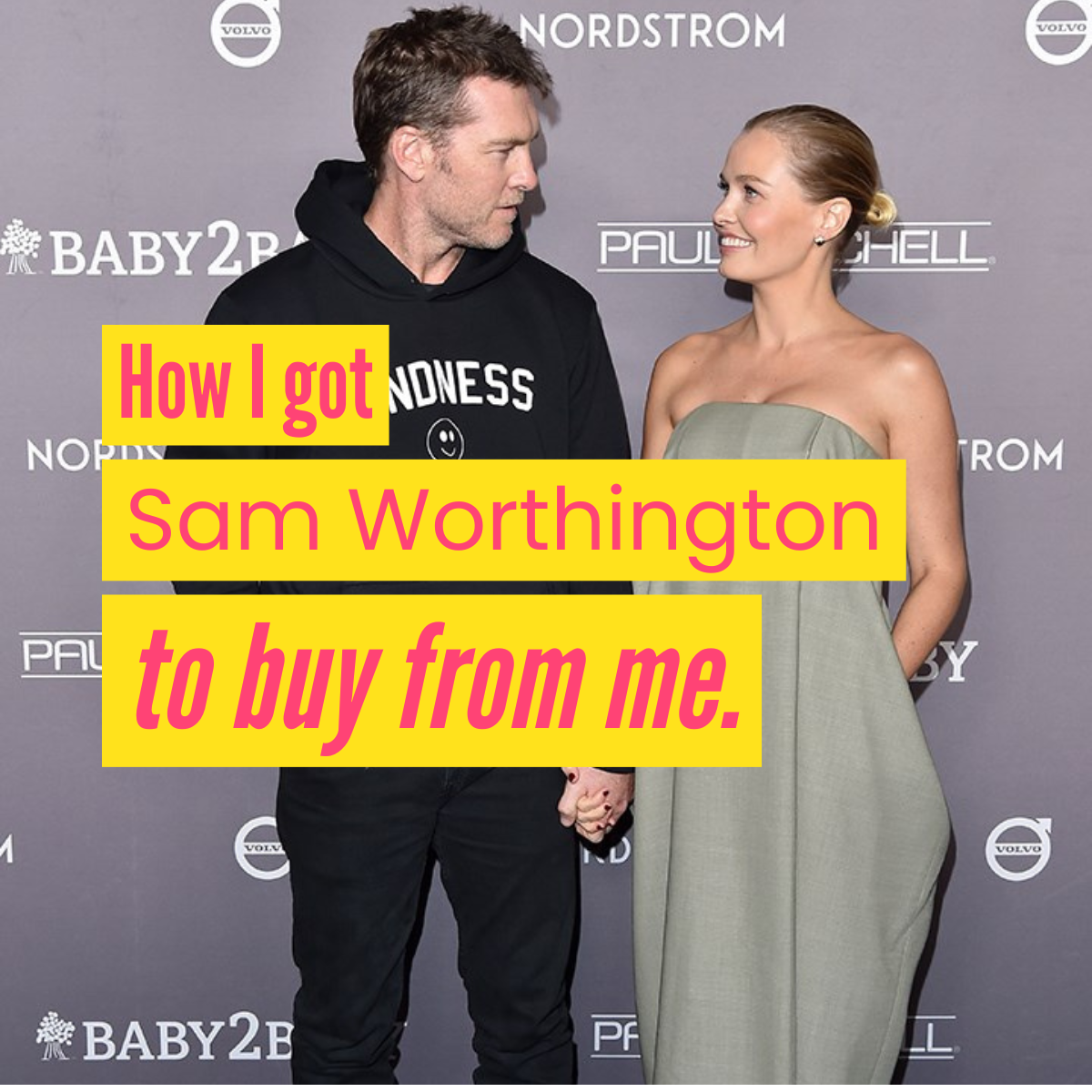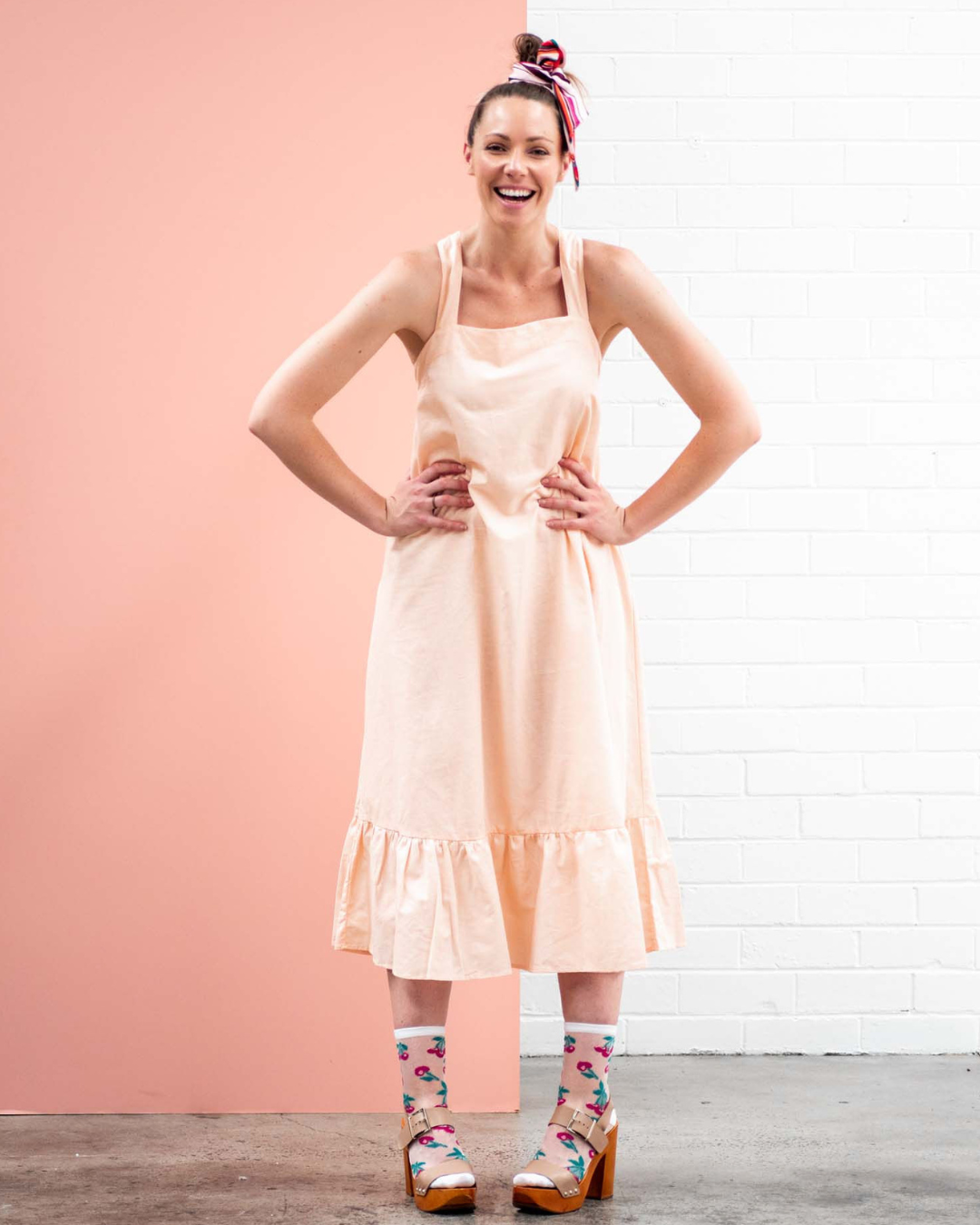Fashion begins with a single idea. It is inspired, creative, raw, empowering and meaningful, but the process between this pure state of conception and a final, finished garment - is rarely questioned.
Before fast fashion, 'how' our clothes were made wasn't really a topic high on the conversation agenda, but in a world of daily trends and viral style shifts, we now need to question every last stitch in our wardrobe. Understanding what is and isn't ethical fashion and understanding the impacts of fast fashion can be overwhelming, but the first step forward towards positive change is as easy as asking one question: who made my clothes?
Asking questions, taking action and fighting for better is what Fashion Revolution Week is all about. This year marks the eight-year anniversary of the devastating Rana Plaza collapse in Bangladesh, which is to date, the deadliest disaster in the history of the garment industry worldwide. On 24 April 2013, the Rana Plaza garment factory collapsed, killing 1138 people, injuring thousands and orphaning thousands more. 80 percent of the workers were young women aged 18 to 20, and their standard shift was 13 to 14 hours a day, toiling 90 to 100 hours per week with just two days off a month.
The annual Fashion Revolution campaign stands to honour the women, men and children who lost their lives for fast fashion. This year, Fashion Revolution Week is all about raising awareness on the interconnectedness of human rights and the rights of nature, and there's plenty of ways you can get involved.
Learn, learn, learn. Knowledge is power.
There's a bunch of online and live events happening all week, so check out Fashion Revolution for the entire calendar. Drop into as many panels and discussions as you can and learn, learn, learn. Knowledge is power, so the more we understand about human rights, fashion and how to change the industry, the more we can do together.
Ask your favourite brands, 'Who made my clothes?'.
Ethical fashion is still the niche, and fast fashion is the norm - unfortunately. It's what we're trying to change at The Fashion Advocate, and it's something you can change too. Pick apart your wardrobe and look at the tags on your clothes. If they say 'Made in Bangladesh', chances are they're made unethically. It's an opportunity for you to ask that brand about their manufacturing practices, their garment worker wages, and what they're doing to stand for human rights. You can email brands, comment on their social media posts, or go old school and write them a letter.
Get involved in the conversation on social media.
Social media has the power to change the world, and so do you. Turn one of your favourite garments inside out, share a selfie with the brand label in focus, and tag the brand into your post to put the spotlight on them. Ask the question again, 'Who made my clothes?' and share more about why you care about ethical fashion, human rights and fair treatment of garment workers.
Sharing is caring. Get your friends involved.
If you're new to the ethical fashion journey, chances are your friends will be too. There's power in numbers, so ask your friends to get involved, send them your social media posts, or start the conversation over a catch-up. The more we can spread the word about ethical fashion and the devastating impacts of fast fashion, the quicker we'll be able to change it. Even better, text ten friends a link to this post to help inspire them.
If you're going to shop, shop ethically.
Since 2014, The Fashion Advocate has been advocating for ethical and sustainable fashion. We have strict guidelines for the fashion we sell (which you can read more about here), and we're committed to supporting only ethical fashion brands that share at least three of our ten values. It can be overwhelming when it comes to making ethical fashion choices, which is why we've done the leg work for you. Every item we sell online is accompanied by a link to the brand that made it, information about where and how it's made, and a list of the brand values. We only sell ethical fashion.
The most important thing to remember? You might be just one person, but one person can change the world, and when eight billion people make better choices, we can change history. Fight for the kind of world you want to live in and make informed, ethical fashion choices - every garment counts.
The Fashion Advocate x




